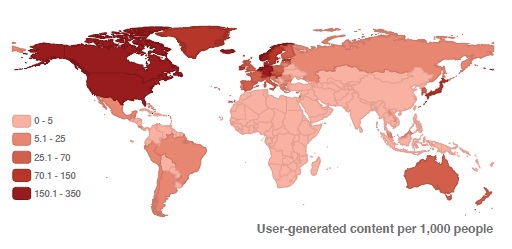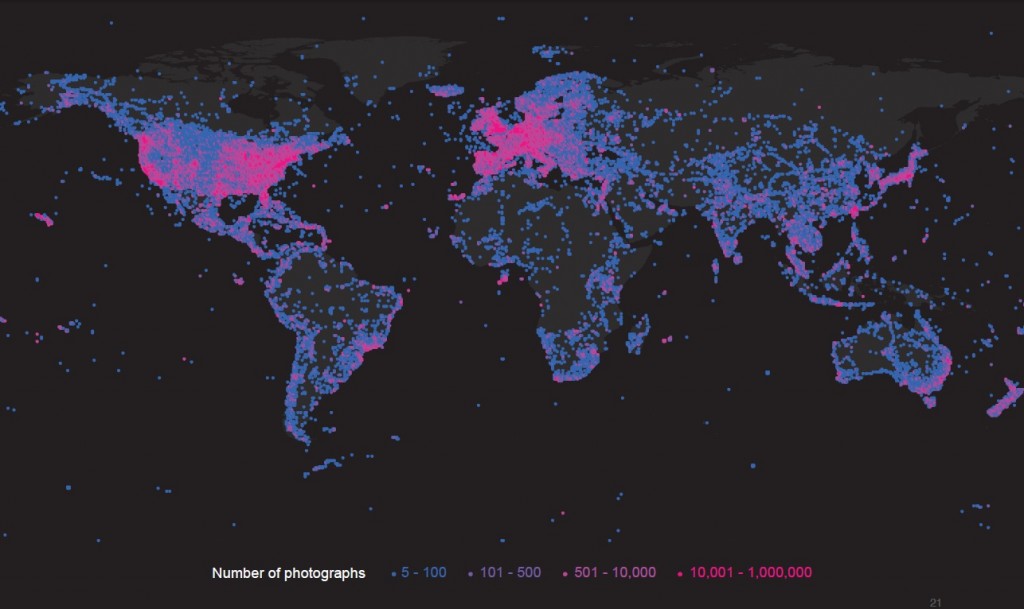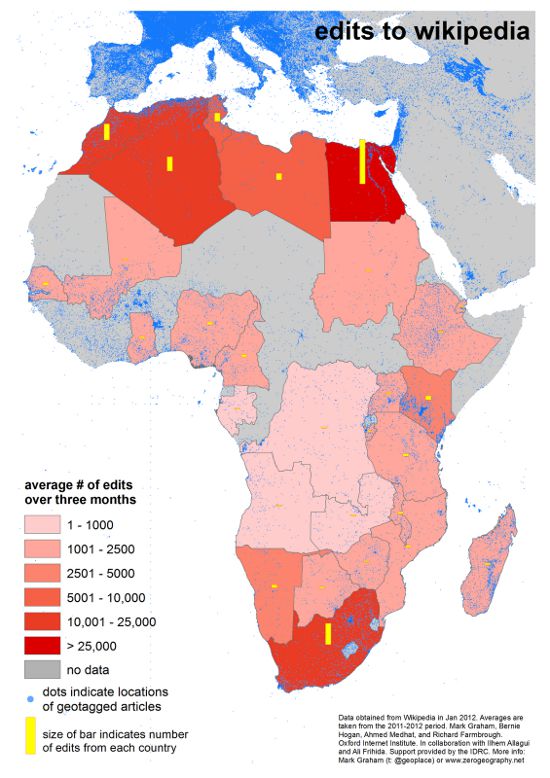Local content in Africa, three ways
Where is knowledge being created? Who has access to this knowledge?
Researchers Viktor Mayer-Schonberger and Mark Graham, along with Dr. Corinne Flick and the Convoco Foundation in cooperation with Oxford Internet Institute, decided to visualize a variety of answers to these important questions. In regards to Africa, there are no surprises in terms of literacy rates, Internet penetration rates, the number of national newspapers, or the lack of academic publications.
Still, of special interest are the attempts to map Flickr, Google, and Wikipedia content generation.
There are relatively few geotagged photos uploaded from Africa, even in areas of high population density (ie. Lagos).

This map visualizes the amount of user-generated content indexed by Google in 2009 in a sample of 250,000 points around the world. {CC BY-NC-ND}
In 2009, Google indexed very few articles from Africa. User-generated content is far from being a simple mirror of either population density or human activity.
After the report was published, Mark Graham (one of the authors) decided to drill down into the number of Wikipedia edits from Africa. Instead of comparing African nations against nations at a global level, he compared them among the continent. The results? Egypt leads the way in terms of edits, distantly followed by South Africa. And the findings don’t necessarily correlate with Internet access; Nigeria boasts very few Wikipedia edits. Kenya and Ghana don’t fare much better. No data exists for much of West and Central Africa.
The bottom line is that every study of African content has its flaws. Most content isn’t geotagged (just remember the controversial Portland Communication’s “How Africa Tweets” infographic). The Google case used by the researchers take sampled data from 2009 – hardly current considering the momentum behind Google Africa products since 2011. And Wikipedia just isn’t as popular in Sub-Saharan Africa as it is in the United States.
Source: Graham, M., Hale, S. A. and Stephens, M. (2011). Geographies of the World’s Knowledge. Ed. Flick, C. M., London, Convoco! Edition.














 Twitter
Twitter Facebook
Facebook Pinterest
Pinterest